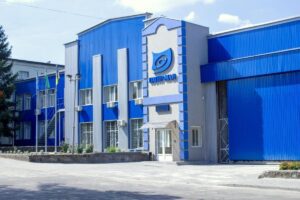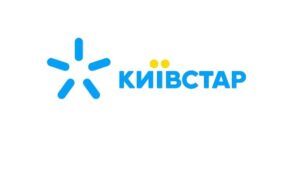
The Institute of Advanced International Studies has opened at the University of World Economy and Diplomacy in Tashkent.
The main activities of the Institute are interdisciplinary study of topical issues of international relations, world economy, international law, regional and country studies, preparation of information and analytical documents, forecasts and recommendations on current issues of modern world politics and economy.
The Institute will organize fundamental and applied research on Afghanistan and South Asia, the Asia-Pacific region, European and American directions, contemporary global development, sustainable development, energy geopolitics, economic diplomacy, international law, as well as the study of anthropology and conflict studies.
This “think tank”, consisting of 8 research centers and laboratories, is composed of experienced and highly qualified specialists and experts in international relations, including diplomats, 3 doctors of sciences and 5 candidates of sciences, including those with experience in international organizations, including UN structures, universities of the United States, Great Britain, Japan and others.

Cypriot T.A.S. Overseas Investments Limited of Sergey Tigipko’s TAS Group has acquired 40.03% in Austrian TransAnt GmbH (Linz), a joint venture established by Austrian ÖBB Rail Cargo Group and voestalpine Stahl GmbH to produce innovative and cost-efficient rail freight cars.
“Another strategic investor with extensive know-how in the railcar industry and modern available assets for the production of freight cars has been brought on board for the company’s recent growth phase in February 2023,” according to information on TransAnt’s website.
According to the Austrian register, voestalpine Stahl’s share has fallen from 80.2% to 48.1% and Rail Cargo Group’s from 19.8% to 11.87%.
The joint venture specifies that after its first cars in continuous operation on the railroad since 2019, another series is being worked on, and TransAnt is focused on creating its own manufacturing technology.
“As early as the second half of 2023, we plan to produce additional railcars in greater numbers using this new manufacturing technology,” the company pointed out.
As previously reported, the competition authorities in Ukraine and Cyprus previously granted TAS Overseas Investments Limited of the TAS Group permission to purchase over 25% in TransAnt.
“TransAnt GmbH is a joint venture established at the end of 2020 between Rail Cargo Austria Aktiengesellschaft and voestalpine Stahl GmbH to operate in the rail freight sector. At this stage, TransAnt is not engaged in commercial activities. However, after the completion of this transaction, it is expected to be actively engaged in the production, development, supply, sale and rental of “flexible” wagons and superstructures for the transport of goods in the industrial sector,” the Cyprus Competition Commission pointed out.
Initially, Rail Cargo Group reported plans for parity ownership in the joint venture with voestalpine, but voestalpine had a controlling stake before the transaction with the TAS Group, in connection with which the Antimonopoly Committee of Ukraine classified TransAnt and voestalpine Stahl GmbH and related companies as a single business entity – the VAS Group. It is a global steel and technology group operating in the automotive, consumer, aerospace, oil and gas, and railroad industries, which is listed on the Vienna Stock Exchange and has no ultimate beneficial owners.
TAS Group was founded in 1998 by businessman Sergei Tigipko. Its business interests include the financial sector (banking and insurance) and pharmacy, industry, real estate and venture projects.
The group includes Dneprovagonmash, one of Ukraine’s leading companies in design and manufacture of freight cars. Its annual production capacity is 9 thnd railcars. In 2021, DVM decreased its production of freight cars by 39.2% to 477, and its sales decreased by 44% to 461, but last year it produced 623 cars. There is no data on financial indicators for 2022 yet, but the company reported a net profit of 32.7 mln hryvnias.
Tigipko told Forbes Ukraine in late 2022 that Dniprovagonmash manufactures 70 freight cars per month and is preparing to localize production in Austria.

People’s deputies of Ukraine propose to modernize and synchronize the legislation in the Ukrainian wine industry in accordance with international standards, in particular to allow bottling wine in metal cans of food aluminum and kegs of aluminum and stainless steel.
The corresponding bill number 9030 “On Amendments to Certain Legislative Acts of Ukraine on the development of wine production and simplification of economic activity of small wineries” was registered in Parliament on February 17.
Among the authors of the document, in particular, the head of the parliamentary committee on finance, tax and customs policy Daniel Getmantsev, the head of the Verkhovna Rada Committee on Agrarian and Land Policy Alexander Haydu, head of the parliamentary committee on economic development Dmitry Natalukha and head of the parliamentary faction “Servant of the People” David Arahamia.
“The current legislation has norms for bottling wine products only in glass containers. Such norms indicate outdated national standards. In such economically developed countries of the world as USA, Great Britain and France it is allowed to pour wine in metal cans from food aluminum, and also kegs from aluminum and stainless steel. Therefore, taking into account current international practice, it is proposed to allow bottling wine in such packaging”, – clarify the authors of the draft law in the explanatory note to the document.
It is also proposed to cancel the need to obtain a license for the production of alcoholic beverages for small Ukrainian wine producers. Instead of licensing, it is proposed to establish a register of small producers of wine products, inclusion in which would be the basis for a business entity to acquire the status of a small producer of wine products.
The draft law No. 9030 proposes to eliminate a number of onerous existing requirements to material and technical base of small producers of wine products, as they buy raw materials of Ukrainian origin (grapes, fruits, berries, honey) for their activities which facilitates the development of agro-processing in the country.
In addition, it is assumed to simplify the reporting procedure for wine producers, from the current monthly to the annual, which will reduce the bureaucratic burden on them. At the same time, the responsibility of small producers of wine products will remain in the form of a fine for failure to submit or late submission of a report or submission of a report with inaccurate information about the volume of production and/or circulation (including import and export) of alcoholic beverages.
The authors of the draft law emphasize that the document is designed to bring national legislation in line with international practices and current trends in the wine industry, involves the removal of unjustified administrative barriers to the activities of producers of wine, fruit and/or honey drinks and allows for the creation of favorable conditions for the development of small production of wine products in Ukraine.
According to the explanatory note to the bill, by the time of its development in Ukraine there are only 26 small winemaking productions, while in 2013 their number reached a hundred, and in 2018 – 52. Thus, the wine industry in Ukraine is in decline, although Ukrainian producers at the international level demonstrate the high quality of their product and receive recognition and rewards.
“For example, in Italy there are 48 thousand small production of wine products, in France about 27 thousand, in Spain – almost 14 thousand in Georgia – more than 1 thousand. Even in countries with a less favorable climate for viticulture (or climatic conditions similar to Ukraine), their number is higher than in Ukraine. Thus, in Slovakia there are more than 28 thousand small wineries, in Germany – about 10 thousand, in Czech Republic – about 1,2 thousand, in Canada – 900, in Poland – 400, in the Netherlands – over 180 (and this number is constantly growing), “- say the authors of the bill.

Cardboard and paper mill Papir-Mal (Malyn, Zhytomyr region) produced UAH 41.11 mln in January which is more than 2.7 times more than in January 2022.
According to statistics from the association “UkrPapir” given to the agency Interfax-Ukraine “in physical terms increased by 2.4 times containerboard production (including paper for corrugation) – up to 6.3 tons, while the production of paper-base for sanitary products declined by 25.6% – to 0.35 tons, toilet paper rolls – by 16% to 1.5 million pieces.
Overall, the output of paper and paperboard increased 2.1-fold to 6.65 thousand tons.
As reported, last year the mill put into operation the second cardboard machine (KDM) with a production capacity of 800m/min (twice as much as the first), which allowed “Papir-Mal” to reach a positive dynamics of paper and cardboard production by the end of the year, despite the fall in paper output by 37%.
With the beginning of a full-scale military aggression of Russia against Ukraine on February 24, 2022 the mill completely stopped production and postponed the launch of the second paper machine, but in March it resumed production.
The production volume of the company in 2022 decreased by 4.7% against 2021 – to 247 million hryvnias.

French Minister of Environmental Transformation Christophe Béchou said on Franceinfo that a drought prevention committee was convened Thursday, to be followed on Monday by a meeting of all the prefects of the national territory.
“This winter is the driest since 1959,” the minister recalled, answering questions from the channel on Wednesday.
He said that France was on “drought alert.” The country has not had any significant rain for 31 days, although precipitation is expected in some places starting Feb. 22.
A meeting with prefects is expected to “look at territory by territory, what things are like,” Beshu noted.
He confirmed that strict restrictive measures on water use could be announced Monday, to begin in March, “to avoid catastrophic situations this summer.”
In view of this prospect, the minister urged that efforts to conserve water be made “already now.” To date, restrictions are already in force in parts of the eight departments of the country. In four departments, emergency water control is in place.
Climatologists are very concerned about the insufficient level of underground water reserves. The French aquifers are “two months late, in terms of filling,” according to Béchu. “It’s fixable, but we need a rainy March, we have two months ahead of us,” the minister explained.
He said that an “extensive water plan” of about fifty measures will be presented in the coming days. The French, in particular, will be encouraged to moderate the use of drinking water for technical and agricultural purposes. The minister also advocated a greater use of treated wastewater in agriculture.
In the summer of 2022, many regions in France experienced a historic drought.

Investments by Ukraine’s largest mobile operator Kyivstar in alternative power supply exceeded UAH 350 million, the company said on Tuesday.
According to the report, the company increased by 75% the number of generators for alternative power supply of base stations, as well as installed more than 18 thousand batteries of a new type with a longer service life.
The release also says that since February 2022 Kyivstar’s specialists have renewed more than 7 thousand base stations and built 700 new base stations for 4G network operation, due to which the territory of the company’s 4G network operation has increased by 6-20% depending on the region.
The operator recalled that during the war about 18% of base stations of the company’s mobile communications were significantly damaged, but thanks to early backup of additional communication channels, the transfer of nodal base stations to the remote from the frontline cities, almost 90% of Kyivstar telecom network is now in working order.
According to the report, since the beginning of the war, Kyivstar specialists restored 600 base stations, replaced 1.2 thousand km of damaged fibre-optic cable, eliminated 140 thousand emergency situations on the infrastructure and returned mobile communications to 815 settlements.
As reported, in early January 2023 Kyivstar announced its plans to increase the number of stationary and mobile diesel generators at other sites of the network by 40% to 14 MW.
Earlier, in December 2022 Yurii Matsyk, director of the department of fixed-line Internet development of the Ministry of Ukraine, noted that only 7% of 32 thousand mobile stations are equipped with generators and 93% – with accumulators. According to him, generators with a capacity of 20-30 kW are needed for the communication node, where there is traffic switching. For the base station – 6-8 kW.